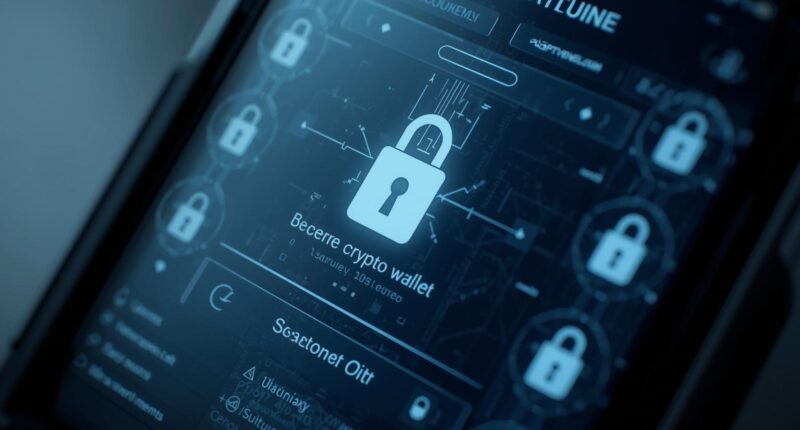How to Secure Crypto Wallet: Essential Tips for Every Investor
With billions of dollars stored in cryptocurrencies, wallet protection has become a top priority. Learning how to secure crypto wallet is critical to safeguarding your digital assets from hackers, scams, and technical mishaps. Whether you’re new to crypto or an experienced trader, following wallet security best practices will help you protect your investments.
Why Learning How to Secure Crypto Wallet Is Important
Cryptocurrencies are decentralized, which means there’s no central authority to recover your funds if they are stolen or lost. Understanding how to secure crypto wallet is essential because:
-
Cybercrime is on the rise – Hackers frequently target crypto users.
-
No chargebacks – Unlike banks, crypto transactions are irreversible.
-
Long-term wealth protection – Many investors treat crypto as part of their retirement or savings.
-
Peace of mind – Security ensures you can focus on investing without fear.
Types of Crypto Wallets
Before diving into how to secure crypto wallet, it’s important to understand the two main wallet categories:
-
Hot Wallets – Internet-connected wallets such as mobile apps, web wallets, or exchange wallets.
-
Pros: Convenient, fast transactions
-
Cons: Higher hacking risks
-
-
Cold Wallets – Offline storage such as hardware wallets or paper wallets.
-
Pros: Much safer against cyberattacks
-
Cons: Less convenient for frequent trading
-
Table: Hot Wallets vs Cold Wallets Security
| Feature | Hot Wallets (Online) | Cold Wallets (Offline) |
|---|---|---|
| Accessibility | Easy and fast | Limited, requires setup |
| Security Risk | Higher (internet exposure) | Lower (offline storage) |
| Ideal For | Active traders | Long-term investors |
| Cost | Usually free | $50–$200 (hardware wallet) |
| Best Security Use | With 2FA & backup phrases | With secure offline storage |
This table highlights the trade-offs when learning how to secure crypto wallet effectively.
How to Secure Crypto Wallet: Best Practices
1. Use a Hardware Wallet
Hardware wallets like Ledger and Trezor are the gold standard for security. By keeping your private keys offline, they greatly reduce hacking risks.
2. Enable Two-Factor Authentication (2FA)
Always activate 2FA on wallets and exchange accounts. This adds a second security layer beyond just a password.
3. Safeguard Your Private Keys and Seed Phrases
Your seed phrase is the master key to your wallet. Write it down on paper or store it in a metal backup and never share it online.
4. Avoid Public Wi-Fi
Hackers often exploit unsecured networks. Use a VPN or mobile data when accessing your wallet.
5. Keep Software Updated
Regular updates fix vulnerabilities. Whether you’re using a mobile wallet or hardware device, keep firmware and apps up to date.
6. Diversify Wallets
Don’t keep all funds in one place. Use multiple wallets (hot for trading, cold for storage).
7. Beware of Phishing Attacks
Never click suspicious links or download unknown files. Always double-check URLs when logging into exchanges.
Additional Security Strategies
Beyond the basics, advanced users who want to master how to secure crypto wallet should consider:
-
Multi-signature wallets – Require multiple approvals for transactions.
-
Air-gapped devices – Completely offline devices for managing crypto.
-
Backup strategies – Secure backups stored in multiple safe locations.
Internal and External Resources
👉 For more crypto safety guides, check out:
Secure Cryptocurrency Wallet Tips
👉 For official cybersecurity guidance, visit the Cybersecurity & Infrastructure Security Agency (CISA):
CISA Cybersecurity Tips
Final Thoughts on How to Secure Crypto Wallet
Knowing how to secure crypto wallet is not just an option—it’s a necessity. With crypto thefts increasing each year, investors must adopt strong security habits.
-
Use hardware wallets for long-term storage
-
Enable 2FA and regular updates for hot wallets
-
Always protect your private keys and seed phrases
By combining these strategies, you can confidently protect your digital assets while enjoying the benefits of cryptocurrency.









